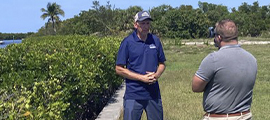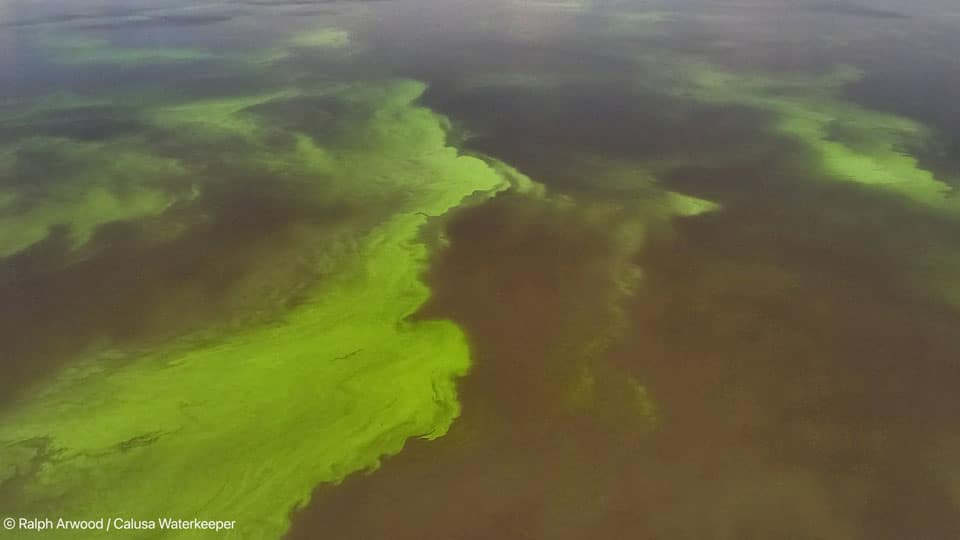Promising incentives and clinical results, the Centers for Disease Control and Prevention is again seeking volunteers for a study on the health effects of cyanobacteria.
The federal agency announced Thursday it will start new research on people exposed to cyanotoxins in South Florida “during the 2021 algal bloom season.”
That season seems close at hand, as a massive Lake Okeechobee bloom moves toward the state’s east and west coasts down the Caloosahatchee and St. Lucie rivers, Lee County’s health department is warning of algae toxins in the Caloosahatchee near the W.P. Franklin Lock and environmental groups have asked Gov. Ron DeSantis to declare an algae-triggered state of emergency.
So it’s certainly timely and urgent, says Calusa Waterkeeper John Cassani, especially since “Previous epidemiological studies have indicated liver cancer clusters in Florida that may have been caused by chronic exposure through inhalation toxicity or through cyanotoxin residuals in a public water supply.”
Continue Reading

























